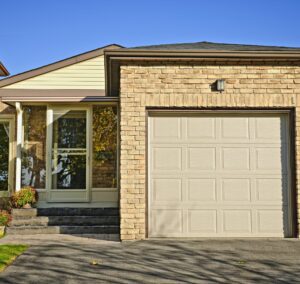Explore the 6 Best Materials for Garage Door Replacement
Thinking about replacing your garage door? It’s a big decision that can impact the look, feel, and functionality of your home. Choosing the right material is key. Just like picking the right ingredients for a recipe, the material you choose for your garage door will determine how well it performs, how long it lasts, and how good it looks. Let’s explore some of the best materials for garage door replacement and help you make the best choice for your home.
Why Material Matters
The material of your garage door affects everything from durability and maintenance to insulation and aesthetics. Picking the right one ensures you get a door that suits your needs and stands the test of time. Let’s break down the pros and cons of some popular materials so you can find the perfect fit.
1. Steel Garage Doors
Steel is like the superhero of garage door materials. It’s strong, durable, and can withstand a lot of wear and tear.
Pros
- Durability: Steel doors are tough and resistant to dents and impacts.
- Low Maintenance: They don’t require much upkeep beyond occasional cleaning and painting if needed.
- Variety: Available in many styles and finishes, including wood-look options.
- Insulation: Can be insulated to improve energy efficiency and reduce noise.
Cons
- Rust: If not properly maintained, steel doors can rust, especially in coastal areas.
- Dents: Though durable, they can still dent if hit hard enough.
Best For
Homeowners looking for a durable, low-maintenance option with a variety of styles to choose from.
2. Wood Garage Doors
Wood doors bring a classic, elegant look to your home. They’re like the luxury cars of garage doors.
Pros
- Aesthetics: Wood offers a warm, traditional look that adds curb appeal.
- Customization: Can be customized with different wood types, stains, and designs.
- Insulation: Naturally good at insulating, keeping your garage warm in winter and cool in summer.
Cons
- Maintenance: Requires regular maintenance, including staining or painting, to prevent warping and rot.
- Cost: Typically more expensive than other materials.
Best For
Those who value aesthetics and are willing to invest in maintenance for a beautiful, custom look.
3. Aluminum Garage Doors
Aluminum doors are like the lightweight athletes of garage doors. They’re sleek, modern, and easy to handle.
Pros
- Lightweight: Easier to operate and puts less strain on the garage door opener.
- Resistant to Rust: Ideal for humid or coastal environments.
- Variety: Available in many styles and finishes, including contemporary designs.
Cons
- Dents: More prone to dents compared to steel.
- Insulation: Not as naturally insulating as other materials unless it has an insulation layer.
Best For
Homeowners in coastal areas or those looking for a lightweight, modern option.
4. Fiberglass Garage Doors
Fiberglass is like the jack-of-all-trades material. It offers a mix of benefits without many downsides.
Pros
- Durability: Resistant to dents, rust, and corrosion.
- Maintenance: Low-maintenance and easy to clean.
- Variety: Can mimic wood without the upkeep, and comes in various styles and colors.
Cons
- Insulation: Not the best insulator unless it’s a composite with insulation.
- Brittleness: Can become brittle in extremely cold temperatures.
Best For
Those who want a durable, low-maintenance door with a variety of style options.
5. Vinyl Garage Doors
Vinyl doors are like the easy-going, no-fuss option. They’re durable, low-maintenance, and child-friendly.
Pros
- Durability: Resistant to dents, rust, and corrosion. Great for families with kids.
- Maintenance: Very low-maintenance and easy to clean.
- Insulation: Good insulating properties, helping to keep your garage comfortable.
Cons
- Limited Styles: Fewer style and color options compared to other materials.
- Brittleness: Can become brittle in extremely cold temperatures.
Best For
Families or homeowners looking for a durable, low-maintenance option that’s resistant to dents and rust.
6. Composite Garage Doors
Composite doors are like the best of both worlds. They combine the benefits of different materials into one.
Pros
- Durability: Made from recycled wood fibers and resins, these doors are tough and resistant to rot and insects.
- Maintenance: Low-maintenance with the look of real wood.
- Insulation: Good insulating properties.
Cons
- Cost: Can be more expensive than steel or vinyl.
- Weight: Heavier than some other materials, which can affect the door opener.
Best For
Homeowners looking for a durable, eco-friendly option that mimics the look of wood.
Making the Right Choice
Choosing the right material for your garage door depends on your specific needs, preferences, and budget. Here are a few questions to help guide your decision:
- What’s Your Budget?: Different materials come at different price points. Determine how much you’re willing to spend.
- How Much Maintenance Are You Willing to Do?: Some materials require more upkeep than others. Be realistic about the time and effort you can commit to maintenance.
- What’s the Climate Like?: Consider the weather conditions in your area. Coastal and humid climates may require rust-resistant materials.
- What Style Are You Going For?: Think about the look you want for your home. Different materials offer different aesthetic options.
- How Important Is Insulation?: If you use your garage for more than just parking your car, consider a material that offers good insulation.
Trust Us With Your Garage Door Replacement!
Replacing your garage door is a significant investment, but with the right material, you can ensure it’s a smart one. Each material has its own set of benefits and drawbacks, so take the time to consider what’s most important to you. Whether it’s the strength of steel, the beauty of wood, or the low-maintenance ease of vinyl, there’s a perfect garage door material out there for you.
Need expert advice or installation services? Contact ASAP Garage Door Service at 210-791-9216 or visit asapgaragedoorstx.com. We’re here to help you choose and install the best garage door for your home. Happy shopping!


